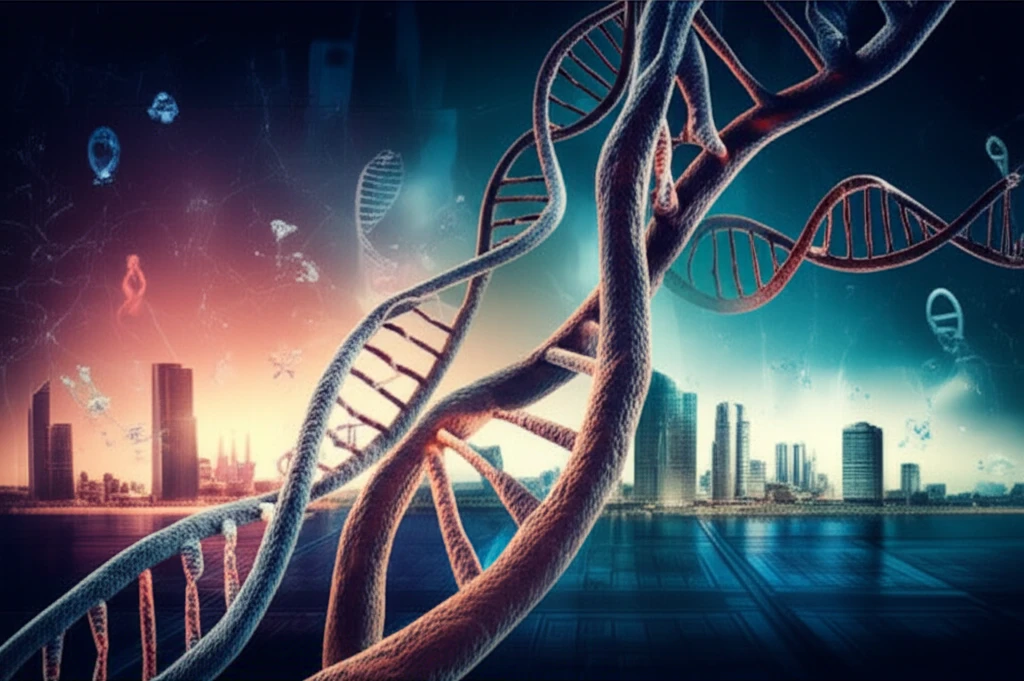
Unlocking the Secrets of Colon Cancer: How Gene Mutations Could Pave the Way for New Treatments
"Groundbreaking research explores the role of frameshift mutations in key genes and their potential impact on colon cancer development and treatment strategies."
Colon cancer, a formidable adversary, continues to challenge researchers and clinicians alike. While advancements in treatment have improved outcomes, the quest to understand the underlying mechanisms that drive cancer development remains paramount. One promising avenue of exploration lies in the realm of gene mutations, specifically frameshift mutations, and their potential to disrupt cellular processes, leading to uncontrolled growth and resistance to therapy.
In a groundbreaking study published in Pathology and Oncology Research, scientists delved into the intricate world of colon cancer genetics, seeking to identify key gene mutations that may play a pivotal role in tumorigenesis. Their investigation focused on a specific type of mutation known as frameshift mutations, which occur when insertions or deletions of nucleotides alter the reading frame of a gene, leading to the production of non-functional proteins. These mutations can have profound effects on cellular processes, potentially driving cancer development and progression.
The study's findings shed light on a subset of genes that harbor frameshift mutations in colon cancer cells, offering potential targets for future therapeutic interventions. By unraveling the complexities of these genetic alterations, researchers hope to pave the way for more personalized and effective treatment strategies, ultimately improving outcomes for patients battling this devastating disease.
What Genes are Affected and What Role Do They Play?

The research team meticulously analyzed a cohort of colorectal cancer (CRC) samples, scrutinizing the DNA sequences of several genes known to be involved in critical cellular functions. Their investigation revealed frameshift mutations in a number of genes, including:
- ANK3: Vital for cell structure and communication.
- TP53BP1: Works with the well-known tumor suppressor, p53.
- MFN1: Important for energy production in cells.
- HACD4: Involved in how cells process fats.
- LCMT2, RNMT, TRMT6, METTL8, and METTL16: A group of genes that help manage DNA by adding or removing methyl groups.
What Does This Mean for the Future of Colon Cancer Treatment?
The findings from this study provide a valuable foundation for future research aimed at developing more targeted and effective therapies for colon cancer. By understanding the specific gene mutations that drive tumor growth and resistance, scientists can design drugs that specifically target these altered pathways, potentially leading to more personalized and successful treatment outcomes. While further investigation is needed to fully elucidate the clinical implications of these findings, this research represents a significant step forward in the ongoing battle against colon cancer.
